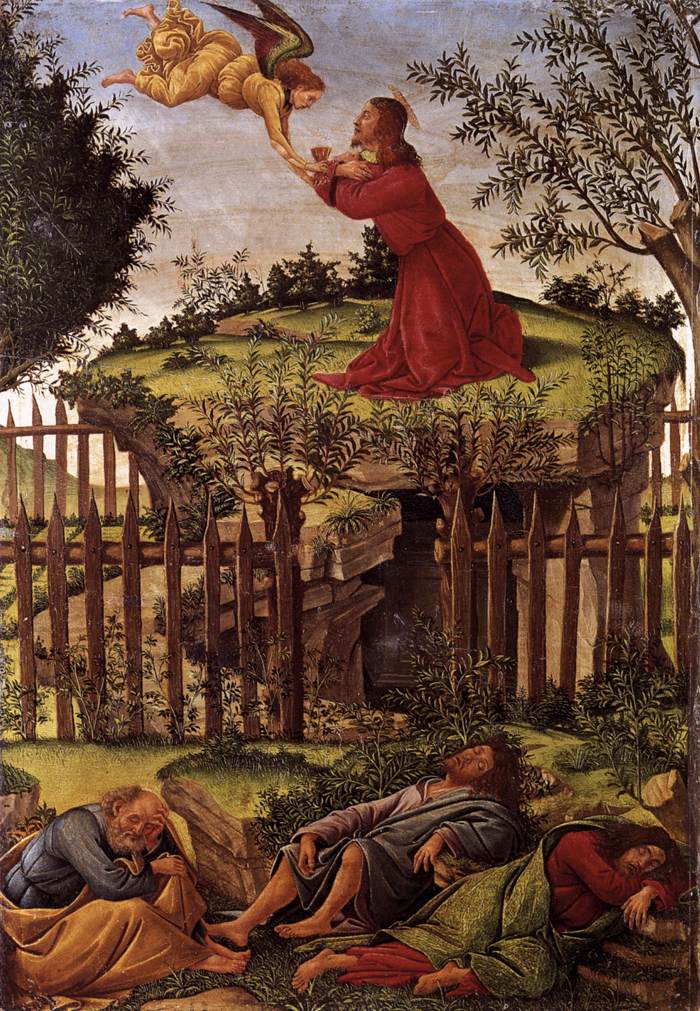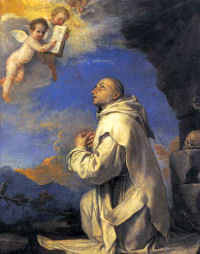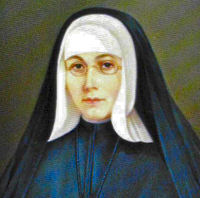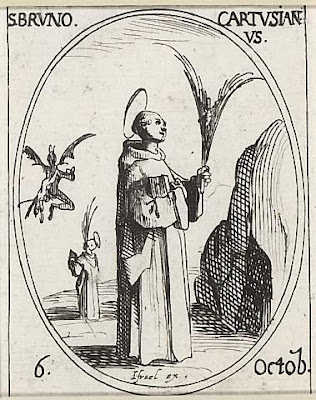Morning Prayer (Lauds)
If this is the first Hour that you are reciting today, you should precede it with the Invitatory Psalm.
O God, come to my aid.
O Lord, make haste to help me.
Glory be to the Father and to the Son and to the Holy Spirit,
as it was in the beginning, is now, and ever shall be,
world without end.
Amen. Alleluia.
Hence, night and clouds that night-time brings,
Confused and dark and troubled things;
The dawn is here, the sky grown white,
Christ is at hand; depart from sight.
Earth’s dusky veil is torn away,
Pierced by the sparkling beams of day:
The world resumes its hues apace
Soon as the day-star shows its face.
But thee, O Christ, alone we seek,
With conscience pure and temper meek:
With tears and chants we humbly pray
That thou wouldst guide us through the day.
So many shades obscure each sense
Which needs thy beams to purge it thence:
Light of the Morning-Star, illume,
Serenely shining, all our gloom.
All laud to God the Father be;
All praise, eternal Son, to thee;
All glory, as is ever meet,
To God the Holy Paraclete.
Psalm 85 (86)
A poor man's prayer in time of trouble |
Make your servant’s heart glad, for to you, O Lord, I have raised it.
Turn your ear to me, Lord, and hear me,
for I am poor and destitute.
Keep my life safe, for I am faithful;
O God, save your servant, who trusts in you.
Take pity upon me, O Lord,
for I call to you all the day long.
Make your servant’s heart glad,
for to you, O Lord, I have raised it.
For you, Lord, are gentle and mild:
you are kind to all those who call on you.
Let your ears hear my prayer, O Lord!
Turn to the voice of my pleading!
In my time of trouble I call on you,
for you, O Lord, will hear me.
No other god is like you, O Lord,
and nothing compares with your works.
All people – all nations you made –
will come and worship before you;
they will give glory to your name.
For you are great, you work wonders:
you alone are God.
O Lord, teach me your paths,
and I will come to your truth.
Make my heart simple and guileless,
so that it honours your name.
I will proclaim you, Lord my God,
and give you praise with all my heart.
I will give glory to your name for ever,
for your great kindness is upon me:
you have rescued me from the deepest depths.
O God, the proud rise against me,
in the meetings of the powerful they seek my life:
they do not keep you in their sight.
And you, Lord, are a God of compassion,
full of mercies, patient and true.
Look upon me, have mercy upon me,
give your strength and protection to your servant:
your servant, the child of your handmaid.
Give me a sign of your goodness,
let my enemies see it and be confounded;
because you, O Lord, have helped me and given me comfort.
Glory be to the Father and to the Son and to the Holy Spirit,
as it was in the beginning, is now, and ever shall be,
world without end.
Amen.
Make your servant’s heart glad, for to you, O Lord, I have raised it.
| The Lord will give just judgement |
Blessed the man whose speech is true and whose ways are just.
Hear what I have done, you who are far off,
and you who are near, learn of my strength.
In Zion, the sinners are afraid;
the hypocrites tremble.
Which of you could live with a devouring fire?
Which of you will abide in everlasting burning?
He who walks in justice, he who speaks fairly –
he who rejects the spoils of robbery –
he who throws back a bribe –
he who blocks his ears against murderous counsels –
he who shuts his eyes against evil sights –
this is he who will dwell on high, secure in a fortress of rocks.
Bread is given to him; his supply of water is secure.
Glory be to the Father and to the Son and to the Holy Spirit,
as it was in the beginning, is now, and ever shall be,
world without end.
Amen.
Blessed the man whose speech is true and whose ways are just.
Psalm 97 (98)
The Lord has brought salvation |
Sound jubilation to the Lord, our king.
Sing a new song to the Lord,
for he has worked wonders.
His right hand, his holy arm,
have brought him victory.
The Lord has shown his saving power,
and before all nations he has shown his justice.
He has remembered to show his kindness
and his faithfulness to the house of Israel.
The farthest ends of the earth
have seen the saving power of our God.
Rejoice in God, all the earth.
Break forth in triumph and song!
Sing to the Lord on the lyre,
with the lyre and with music.
With trumpets and the sound of the horn,
sound jubilation to the Lord, our king.
Let the sea resound in its fulness,
all the earth and all its inhabitants.
The rivers will clap their hands,
and the mountains will exult at the presence of the Lord,
for he comes to judge the earth.
He will judge all the world in justice,
and the peoples with fairness.
Glory be to the Father and to the Son and to the Holy Spirit,
as it was in the beginning, is now, and ever shall be,
world without end.
Amen.
Sound jubilation to the Lord, our king.
| Short reading |
Job 1:21,2:10 © |
Naked I came from my mother’s womb, naked I shall return. The Lord gave, the Lord has taken back. Blessed be the name of the Lord! If we take happiness from God’s hand, must we not take sorrow too?
Turn my heart, Lord, to your judgements.
– Turn my heart, Lord, to your judgements.
Give me life and make me follow your path.
– Turn my heart, Lord, to your judgements.
Glory be to the Father and to the Son and to the Holy Spirit.
– Turn my heart, Lord, to your judgements.
| The Messiah and his forerunner |
Remember your holy covenant, Lord, and take pity on us.
Blessed be the Lord, the God of Israel,
for he has come to his people and brought about their redemption.
He has raised up the sign of salvation
in the house of his servant David,
as he promised through the mouth of the holy ones,
his prophets through the ages:
to rescue us from our enemies
and all who hate us,
to take pity on our fathers,
to remember his holy covenant
and the oath he swore to Abraham our father,
that he would give himself to us,
that we could serve him without fear
– freed from the hands of our enemies –
in uprightness and holiness before him,
for all of our days.
And you, child, will be called the prophet of the Most High:
for you will go before the face of the Lord to prepare his path,
to let his people know their salvation,
so that their sins may be forgiven.
Through the bottomless mercy of our God,
one born on high will visit us
to give light to those who walk in darkness,
who live in the shadow of death;
to lead our feet in the path of peace.
Glory be to the Father and to the Son and to the Holy Spirit,
as it was in the beginning, is now, and ever shall be,
world without end.
Amen.
Remember your holy covenant, Lord, and take pity on us.
| Prayers and Intercessions |
|
Christ feeds and cares for the Church, for which he gave his very self. And so we pray:
– Lord, look after your Church.
Blessed are you, shepherd of your Church, because today you give us light and life:
make us truly grateful for such wonderful gifts.
– Lord, look after your Church.
Look kindly on the flock you have gathered in your name:
let no-one perish from the flock your Father has given you.
– Lord, look after your Church.
Lead your Church along the path of your commandments:
may the Holy Spirit keep her faithful to you.
– Lord, look after your Church.
By the feast of bread and the Word, give life to your Church:
nourish her and give her the strength to follow you with joy.
– Lord, look after your Church.
Our Father, who art in Heaven,
hallowed be thy name.
Thy kingdom come,
thy will be done on earth as it is in heaven.
Give us this day our daily bread,
and forgive us our trespasses
as we forgive those who trespass against us,
and lead us not into temptation,
but deliver us from evil.
Lord, in your kindness fill our deepest being with your holy light,
so that we may be steadfast in our devotion to you:
for your wisdom created us and your providence guides us.
[We make our prayer] through our Lord Jesus Christ, your Son,
who lives and reigns with you in the unity of the Holy Spirit,
God for ever and ever.
Amen.
May the Lord bless us and keep us from all harm; and may he lead us to eternal life.
AMEN



 6th
6th  St. Bruno, born in Cologne about 1030, was the founder of a religious Order, the Carthusians. His mother was St. Matilda, patroness of Maude, widow of King Henry I. Excepting St. Norbert, he is the only German having that honor. His contemporaries called him the light of the Church, the flower of the clergy, the glory of Germany and France. Early in life he was a canon at Cologne and Rheims. The persecution by the simoniacal archbishop of Rheims, Manasses, hastened his resolve to enter a life of solitude (1084). Legend puts it this way. A famous professor had died. While the Office of the Dead was being chanted at his funeral, he suddenly raised himself up from the coffin and said: "By the just judgment of God have I been accused, judged, damned." Thereupon Bruno renounced the world. He received from Hugo, bishop of Grenoble, a site called Chartreuse (from the color of the surrounding hills) as a place of residence.
St. Bruno, born in Cologne about 1030, was the founder of a religious Order, the Carthusians. His mother was St. Matilda, patroness of Maude, widow of King Henry I. Excepting St. Norbert, he is the only German having that honor. His contemporaries called him the light of the Church, the flower of the clergy, the glory of Germany and France. Early in life he was a canon at Cologne and Rheims. The persecution by the simoniacal archbishop of Rheims, Manasses, hastened his resolve to enter a life of solitude (1084). Legend puts it this way. A famous professor had died. While the Office of the Dead was being chanted at his funeral, he suddenly raised himself up from the coffin and said: "By the just judgment of God have I been accused, judged, damned." Thereupon Bruno renounced the world. He received from Hugo, bishop of Grenoble, a site called Chartreuse (from the color of the surrounding hills) as a place of residence.  Born October 6, 1811 at St. Antoine in Quebec, Canada, Eulalie Durocher was the tenth of eleven children. She was drawn to the religious life, but turned away because of her frail health. For 12 years she assisted her brother, a parish priest, as a housekeeper. With encouragement of the bishop, in 1843 she founded the Sisters of the Holy Name of Jesus and Mary, taking the name Marie-Rose. Her religious order was dedicated to Christian education, especially for the poor. She died on October 6, 1849 of natural causes. This Order first came to the U.S. in 1859. Marie-Rose was beatified on May 23, 1982 by Pope John Paul II.
Born October 6, 1811 at St. Antoine in Quebec, Canada, Eulalie Durocher was the tenth of eleven children. She was drawn to the religious life, but turned away because of her frail health. For 12 years she assisted her brother, a parish priest, as a housekeeper. With encouragement of the bishop, in 1843 she founded the Sisters of the Holy Name of Jesus and Mary, taking the name Marie-Rose. Her religious order was dedicated to Christian education, especially for the poor. She died on October 6, 1849 of natural causes. This Order first came to the U.S. in 1859. Marie-Rose was beatified on May 23, 1982 by Pope John Paul II. 


